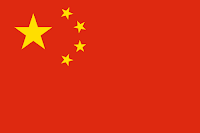 |
| source: Earthday.org |
The Green Transition Scoreboard tracks investments in Renewable Energy, Energy Efficiency, Life Systems, Green Construction and Corporate Green R&D with the following totals as of 2016:
In a press release announcing these figures and the 2016 GTS report, "Ending Externalities: full-Spectrum Accounting Clarifies Transition Management", Hazel Henderson, founder of Ethical Markets, futurist, evolutionary economist and author - including of The Power of Yin (Cosimo Books) is quoted as follows:
“The upward trend in investments since 2007 aligns with our recommendation to invest at least 10% of institutional portfolios directly in companies driving the global Green Transition,” says Henderson. Updating strategic asset allocation models serves both as opportunities and as risk mitigation. Excluding government investments to the extent possible, the $7.13 trillion in private investments and commitments as of 2015 puts private investors on track to reach $10 trillion in green sector investments by 2020."
This is great news for the green economy and for the future of a healthy and sustainable planet.


